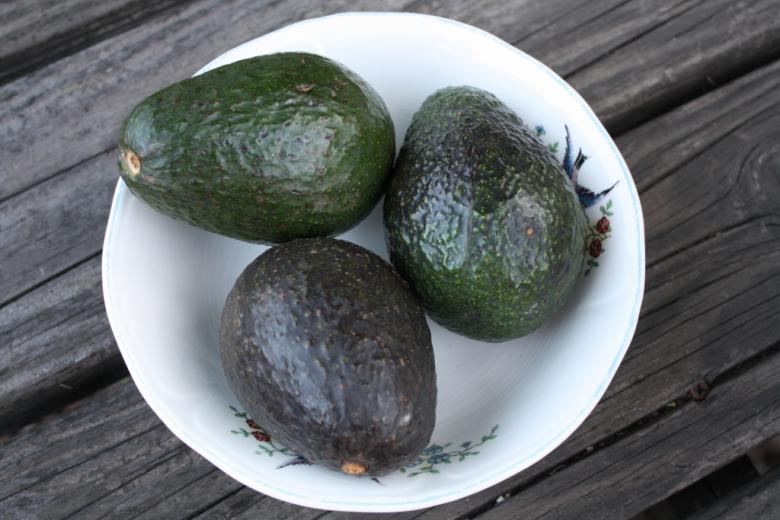Avocados – Delectably Versatile
Avocados seem to be synonymous with California. With nearly 5,000 growers, 90 percent of the nation’s crop is grown in California, and the fruit is celebrated in festivals and widely featured in Californian cuisine. A historical fruit, avocados have nutritional and beauty-enhancing properties, and are enjoyed and grown in many tropical and sub-tropical countries.
The avocado originated in south-central Mexico sometime in 7,000 to 5,000 B.C. but it was not cultivated for a few more centuries. Archeologists found domesticated avocado seeds buried with Incan mummies in Peru, dated 750 B.C., and scientists also found evidence of cultivated avocados in Mexico in 500 B.C. Early Spanish explorers could not pronounce the Aztec name, ahuacatl (meaning testicle, due to its obvious shape), and changed it to aguacate. The English name avocado was coined by Sir Henry Sloane in 1669. Judge R. B. Ord of Santa Barbara, California, successfully introduced the fruit to the U.S. with trees from Mexico in 1871.
Avocado’s Many Uses
According to Vitamin Depot Online, the Aztecs considered the avocado to be an aphrodisiac and the Mayans used it for an all-encompassing beauty regiment for smooth, healthy skin and hair. The monounsaturated fatty acids, phytosterols and vitamin E in avocado oil are easily absorbed by the scalp, hair follicles and hair shafts. Avocado oil is used to prevent dandruff flakes, help strengthen thinning hair, possibly stimulate hair growth, and moisturize dry, brittle hair, according to Super Food Profiles.
Nutritional Content of One Avocado
253 mg of Omega-3 fatty acids
3,886 mg of Omega-6 fatty acids
High in potassium, Vitamin K, fiber, and folate
Once regarded as a luxury fruit for royalty, avocados are now enjoyed by folks from all walks of life, and in various countries. In fact, according to avocado.org, approximately 43 percent of all U.S. households buy and consume avocados, making it a very popular fruit. The high fat content makes it a very popular food for vegans, who substitute avocados for animal fats such as butter or mayonnaise.
The subtle flavor and “fatty” texture of the avocado makes it an incredibly versatile food, and it can be featured in savory or sweet dishes. In Vietnam and the Philippines, avocado shakes are very popular, and avocado ice cream can be found in Brazil. Avocados are typically eaten raw and featured in all types of sandwiches, salads, sushi rolls, and of course in Mexican cuisine. For a delicious vegetarian taco, check out the recipe created by our board member, Jillena Hernandez of Eat Well, Live Free.


